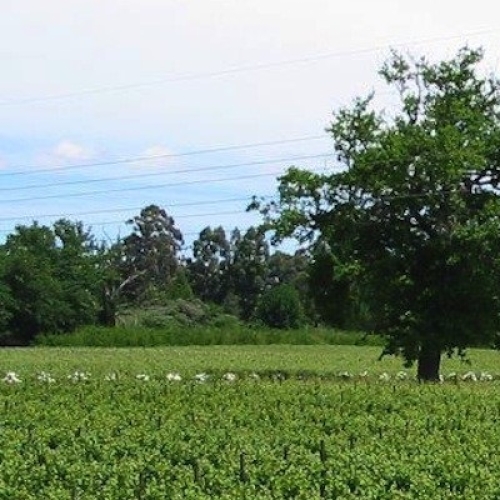
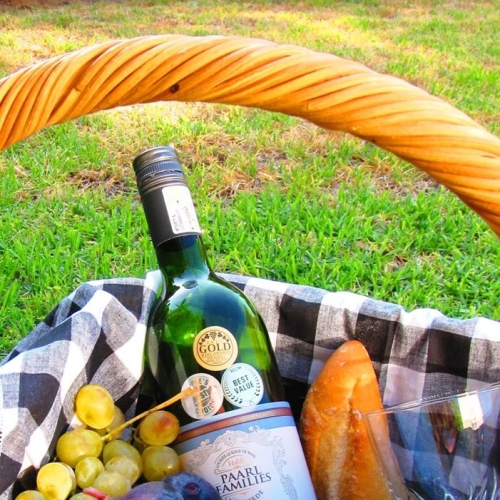
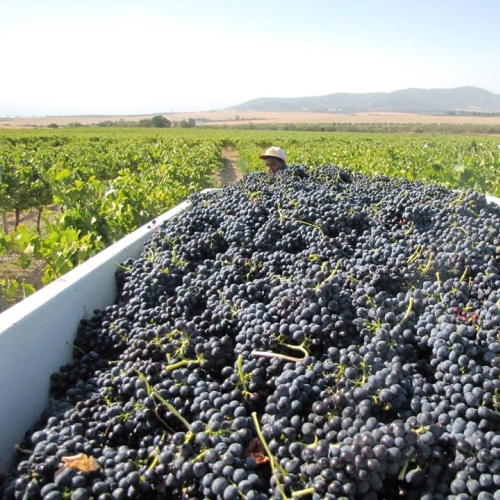
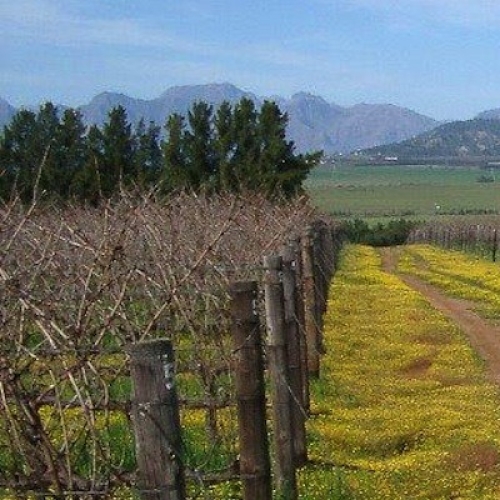
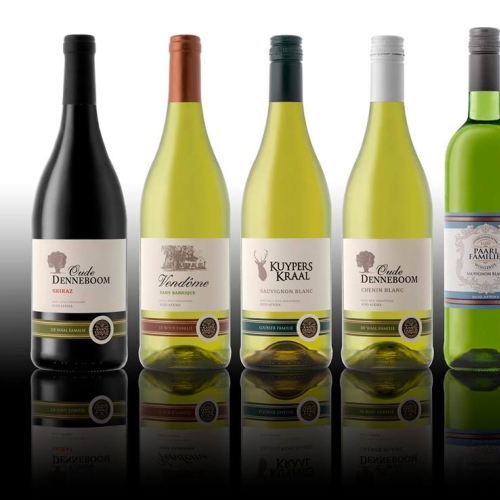
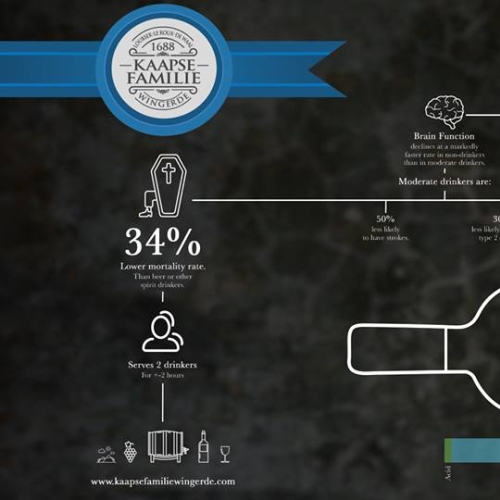
Kaapse Familie Wingerde
Location
Paarl
Overview
“Every family has a story to tell…Welcome to ours”
Kaapse Familie Wingerde is made up of three Boland families – Le Roux, Loubser, De Waal - who have over 30 generations combined experience in the Cape wine industry.
Each of the three families has individually also been involved with the growing of grapes for more than 100 years in his own area. As a result the members of the group have an in-depth knowledge of all the factors that may have an influence on his environment and terroir. From here stems the fact that each one knows which cultivar will perform the best in each area of his terroir.
The ancestors of the Le Roux family from Vendome in Paarl, arrived with the French Huguenots in the Paarl Valley in 1688 and today their offspring are growing grapes at the beautiful Vendome in Paarl. They are also eminently involved in their community, through which they are contributing enormous value to the valley. The Loubser family have been farming for more than 150 years in the Philadelphia area and their ancestors have a unique bond with their terroir. Their long-term vision allows them to establish lasting effects in the agriculture and to live by their philosophy in a palpable way to farm in an ecological friendly manner in their environment. The progenitor of the De Waal family from Oude Denneboom in Voor-Paardeberg have established themselves in the Voor-Paardeberg after the family have grown vineyards and produced wine for generations. They also have a long-term obligation to their terroir, which stems from the fact that a third of the farm has been set aside for conservation.
What makes us unique? We have the advantage of unique knowledge of our environment and therefore choose to focus on the region in which the cultivar performs the best. Each farm has terroir differences and our exceptional knowledge thereof, allows us to plant the different cultivars on/in the most suitable terroir.It is our belief that the soil must be used sustainably and that the soil is only on loan to us from our seed. Sustainability is only possible if every generation leave the earth in a better condition when it is handed over to the next generation, which is probably the main reason why the three families have been able to hand over the farms for generations.All three families have to date, selected a proportion of their best grapes and have processed it. This wine has been promoted on a limited scale in South Africa and abroad.
Our name is of the utmost importance to us and therefore it is an unconditional guarantee that only the exceptional wines will be sold under our name. The district in which the wines come from, has on various occasions won the prize as the best wine in the world at the International Wine and Spirit Competition (IWSC).
The Loubser, Le Roux and De Waal families that have over generations come together as winemaking families have seen a unique opportunity to bind their forces together within Kaapse Familie Wingerde.
Family History:
Loubser Family
The Loubser family has a long history in South Africa. Nicolaas Laubscher, which is the original spelling of the surname, arrived in South Africa in 1676 from Frachels FR, Switserland. He couldn’t read or write, and signed his name with a firm Swedish cross. Illiteracy as well as declension to Dutch, were reasons for the different spellings of Laubscher over the years, of which Loubser is one. Nicolaas or Claas, as he was known, bought a farm, Buyten Post, on the Soutrivier and with the help of one slave, started farming with wheat, barley and sheep. He was also a wamaker by trade. When his friend, Pockelman, who looked after sheep for the Kompanjie, had to return them, they decided to swop the two fat sheep of the Kompanjie with Claas’s two thin sheep. For this, he was banished to Robben Island for two years’ hard labour! After various pleas, it was changed to two years’ hard labour at the Castle en he could go home in the evenings. Three years later he was fined 25 (riksdaalders) plus law costs for bartering with the Koi. He married Engeltje Quint van Leersum, Holland, maid to one of the officers in the Cape. Of his nine children, only the eldest three survived – Johannes Albert, Egbert Eduart and Aletta. His farming expanded and by 1695 he became a wine farmer with the planting of 6 000 vines. It became 16 000 in 1700 and 2 (leers) wine and by 1719, 18 000 and 5 (leers) wine. In 1704 the farm Welgemoed, a suburb of Bellville today, was assigned to him and in 1707, a farm in the Dieprivier, in Koeberg. He then also owned 4 houses in Cape Town. He was 70 years of age when he died in 1721, which was an exceptional age in those days. He was the only Loubser/Laubscher who came to the Cape and everyone with this name or variations thereof, is descendants of him. He verily made his mark in the South-African society. Since then, throughout all the generations, farming was in the blood of this family and well known farms in the Cape, like Welgemoed, Vissershok, Uitkyk and others, have at times, belonged to them. Governor Swellengrebel awarded the Farm, Welgegund, near the Dieprivier in Koeberg, as farming for the first time in 1743 to Matthys Zondag and in 1873 Johannes Albertus Loubser became the first owner. For the next 6 generations, the Loubsers farmed there. Pieter Eduard Loubser planted the first vineyard in 1964. Today, his five sons run the farming with all its extended branches, like wine, wheat and milk. The latter is packed and distributed nationwide under the trade name, Fair Cape, while the wine, with the trade name, Kuyperskraal, is one of the three Boland families that together forms the Kaapse Familie Wingerde.
Le Roux Family
The Le Roux progenitors (Jean *1667-1711 and Gabriel *1667-1711), arrived in South Africa on 13 April, 1688 along with 20 other Huguenots. Jean and Gabriel’s parents were Pierre (sergeant de la justice) and Anne Bourdon. As Huguenots, they fled out of the Blois, Mer and Vendome – located next to the Loire River - in France, and were invited by the Netherland VOC to help them to expand the wine industry in the Cape. They established their vineyards on both sides of the Bergrivier in the Paarl. With little aid and a very modest beginning, they built on their farms and families. After 325 years, they, as the 9th and 10th generation, are still wine farmers. Not everything was always strictly Calvinistic. In 1710 Gabriel appeared in front of the ‘Landdorst en Heemraden’ because he used abusive language towards the Drakenstein church council. He had to pay 5 ‘ryksdalers’ for the purpose of the poor, as punishment. Gabriel (our progenitor) married Marie-Catherine le Febre in 1701. Both brothers drowned in the winter of 1711. Our ancestors were always involved with the church, business world and community. Jannie (1867-1945) was the founder member of the Huguenote Wynboere, started a buchu farm and developed a road over Du Toitskloof till there. Jannie (1909-1961) produced wine, started a protea farm, exported fruit and was actively involved in the business community. In 1968, Jannie snr started farming and in July 2011, Jannie jnr took over the reins. Our ancestors and ourselves, see our role only as the treasurer of the heritage of the progenitors as well as the developer of the farm for the next generation.
De Waal Family
The progenitor, Jan de Waal, of Amsterdam, established himself in 1715, as 23 year old, in the Cape on his way back from India and married Elisabeth van Eck from Netherland, a year later. Jan’s 17 children and successful business career formed a solid base for the growth of the De Waal seed in South Africa. Waal Street, inter alia, in Cape Town is named after our progenitor. The genes of the De Waal family also has a healthy dose of Africa, as the Khoi girl, Krotoa, once a translator in Jan van Riebeeck’s household, is one of their ancestors. In those years, an unmarried young man was very lonely on the farm and one of our ancestors, Arend de Waal, married in 1775, at 17 years of age with the fifteen year old Maria Bosman from Stellenbosch. Their eldest son, Pieter, had to undergo a fair amount of trade journeys inland before he had enough money to pay the deposit on the farm Langverwacht, which he bought for (Pound sign) 1000. He was a well-known farmer and strict with his children, but also loved, as witnessed by Jacob en Lotjie, who stayed with the family after their exemption of slaves. Pieter’s 8th son, Manie, was born at Langverwacht in 1848. Pieter could assist five of his sons in buying a farm, but Manie had to make his own plan. In 1872 Manie and his cousin left with a car and two horses to the Du Toitspan diamond fields. Manie remembered that at times they were struggling to make ends meet. His luck turned when he found a 45-carat diamond that sold for 190 (pounds). It enabled him to marry a girl, Krige, from Stellenbosch and in 1877 he was the first De Waal that established him in the “eenzame Paardenberg”. Like Manie, his offsprings are also successful wine farmers in Voor-Paardeberg. In 1927 already, for example, Pieter de Waal won the General Jan Smuts trophy for the South African Champion wine. Pieter’s second son, Willie (born 1909) distinguished himself as a well-known farmer and businessman. In 1940 he bought the farm Oude Denneboom, so that he could hand it down to a second son, yet to be born. This son, Niel, has been farming there since 1980. Today it is his son Willem, who sets forth the tradition here at Oude Denneboom. The De Waal family have been wine farmers for generations, but nature is important to us and therefore we focus on sustainable farming practices.

Emily Griffin
5.0
[No comment]
ReplyAndre Liebenberg
5.0
[No comment]
ReplyScois Joubert
5.0
[No comment]
ReplyOdette Hefer
4.0
[No comment]
ReplyMia Smit
5.0
[No comment]
Reply